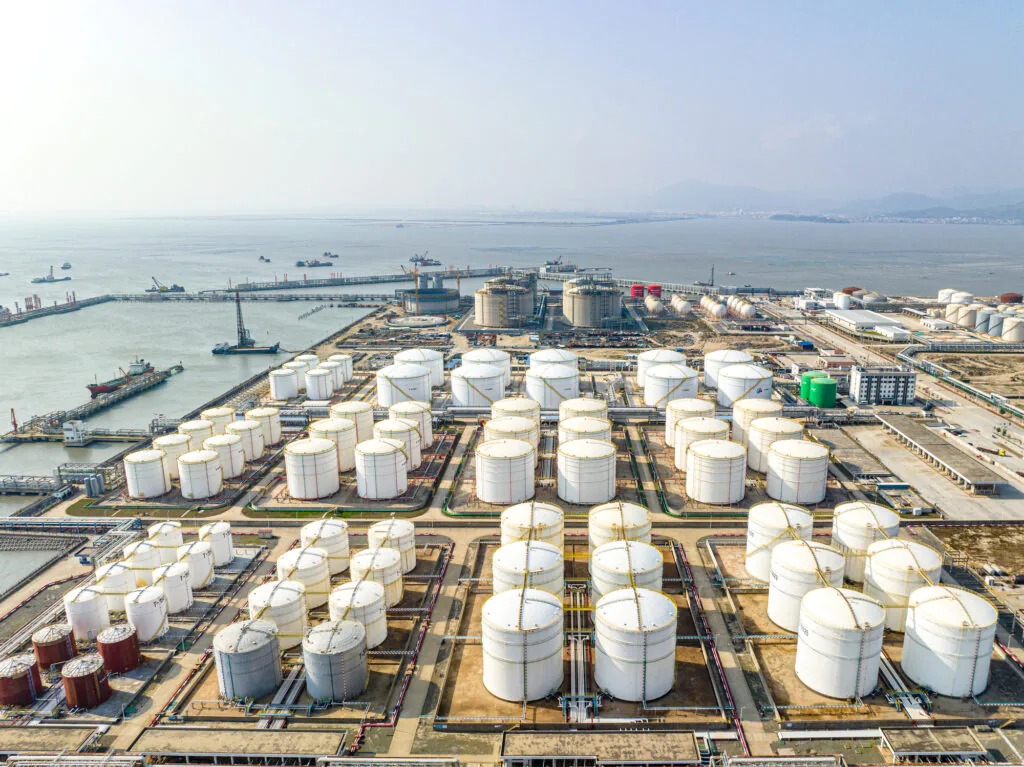Liquefied Petroleum Gas (LPG) is increasingly recognized as a pivotal fuel in the global energy landscape, offering versatile applications across residential, agricultural, and commercial sectors. Its utility extends beyond traditional uses such as cooking, heating, and hot water systems to include roles as a refrigerant, propellant, vehicle fuel, and petrochemical feedstock. The growing adoption of LPG is largely attributed to its economic advantages, efficient combustion with low emissions, and its status as a cleaner alternative to more polluting fossil fuels like coal and oil. As the United States leads in LPG production and exportation, the market for propane and butane is poised for steady growth, reflecting the fuel’s adaptability and essential role in facilitating the transition to sustainable energy solutions.
In this blog, we will explore the various challenges faced in the procurement of propane and butane gas. Furthermore, we will discuss innovative solutions that can be implemented to overcome these hurdles effectively. By addressing these challenges head-on, stakeholders can enhance operational efficiency while contributing to a more sustainable energy future.
What is Retail Gas Procurement?
Retail gas procurement refers to the strategic process of sourcing and purchasing liquefied petroleum gases (LPG), such as propane and butane, for resale or operational use. It involves managing supplier contracts, pricing fluctuations, compliance, and logistics to ensure cost-effectiveness and supply chain reliability.
LPG: The Future of Clean Energy—Versatile, Efficient, and Sustainable

Liquefied Petroleum Gas (LPG) is rapidly emerging as a cornerstone fuel across various sectors, including residential, agricultural, and commercial applications. Its versatility extends beyond traditional uses like cooking, heating, and hot water systems to encompass roles as a refrigerant, propellant, vehicle fuel, and petrochemical feedstock. The surge in LPG consumption is driven by its economic advantages, efficient combustion properties that yield low emissions, and its reputation as a cleaner alternative to coal and oil.
Currently, the United States stands at the forefront as the leading producer and exporter of LPG, with propane and butane being the primary varieties traded on the global market. The demand for these gases is projected to grow steadily, with propane expected to increase at a rate of 3.1% and butane at 2.8% during the forecast period. This growth trajectory reflects not only the fuel’s adaptability but also its role in supporting sustainable energy transitions.
Navigate the complexities of propane and butane sourcing with ease—request your free proposal now and transform your supply chain strategy…
Challenges in the Procurement of Propane and Butane Gas
The procurement of propane and butane gas involves several significant challenges that can complicate operations for buyers. Below are detailed explanations of these challenges, each presented with equal emphasis.
Ensuring supplier compliance with labor laws and international standards is critical, but rigorous audits increase costs and operational complexity.
Obtaining essential supplier data, such as plant utilization rates, is often difficult, hindering effective procurement assessments.
Fluctuations in demand, supply, and crude oil prices create unpredictable pricing for propane and butane, complicating budget forecasts.
High storage costs for liquid propane lead buyers to lease containers, which restricts supplier flexibility due to installation costs.
A lack of visibility into third-party transportation contracts complicates legal compliance and consistent supply management.
The shift towards decarbonization and eco-friendly practices introduces new regulatory challenges that buyers must navigate while maintaining cost efficiency.
Compliance and Auditing Challenges
Evaluating supplier compliance with labor laws and international standards is essential. Non-compliance can lead to severe penalties, which makes rigorous supplier audits necessary. However, these audits increase procurement costs and add complexity to the buying process, creating a substantial pain point for buyers. The need for periodic reviews can strain resources and divert attention from core business activities, ultimately impacting overall efficiency.
Data Accessibility Issues
Access to critical supplier data, such as plant utilization rates and total yield capacity, is paramount for effective procurement decisions. Unfortunately, obtaining this information is often challenging due to a lack of transparency from suppliers. This hinders buyers’ ability to accurately assess supplier performance and make informed decisions, potentially leading to suboptimal procurement choices that can affect supply chain reliability.
Pricing Volatility
The prices of butane and propane are highly susceptible to fluctuations in demand, supply, and crude oil prices. Seasonal variations further complicate pricing structures, with notable differences between winter and summer rates. The volatility in crude oil prices makes it difficult for buyers to forecast propane gas prices accurately, which can disrupt procurement budgets and financial planning. This unpredictability necessitates careful market monitoring and strategic planning to mitigate risks.
Storage and Logistics Complications
Storing propane in liquid form significantly escalates storage costs for buyers. Many opt to rent or lease storage containers from suppliers, but these agreements can create barriers to switching suppliers due to high uninstallation and reinstallation costs. This situation can lead to operational interruptions and limit flexibility in responding to market changes or supplier performance issues.
Transparency in Transportation Agreements
Suppliers often rely on third-party vendors for propane transportation and storage. However, buyers frequently lack visibility into these contractual agreements, which complicates compliance with transportation laws and regulations. This lack of transparency can result in inconsistent supply flows, making it challenging for buyers to maintain reliable operations while ensuring adherence to legal requirements.
Environmental Considerations
The LPG industry is undergoing a transformative phase driven by increasing environmental consciousness. There is a growing emphasis on decarbonization, eco-friendly products, and bioLPG as companies pursue net-zero targets. While this shift presents opportunities for innovation and sustainable growth, it also introduces challenges related to compliance with new regulations and the need for investment in greener technologies. Buyers must navigate these evolving demands while balancing cost considerations against sustainability goals.
Each of these challenges plays a crucial role in shaping the landscape of propane and butane gas procurement, requiring strategic approaches from buyers to effectively manage risks while optimizing their supply chains.
Innovative Solutions to Overcome Challenges in Retail Gas Procurement
To effectively address the challenges in the procurement of propane and butane gas, a range of innovative solutions can be implemented. Here are targeted strategies for each identified challenge:
-
Implement automated compliance software that centralizes data management and monitors regulatory changes in real time. This technology streamlines audits, reduces errors, and enhances overall compliance efficiency, allowing companies to focus on core operations while maintaining adherence to labor laws and international standards.
-
Utilize IoT telemetry solutions to gather and share critical supplier data, such as plant utilization rates and yield capacities. By connecting sensors to a cloud-based monitoring platform, buyers can access real-time data, improving supplier assessment and decision-making processes.
-
Adopt advanced analytics platforms that provide insights into market trends and pricing forecasts. By leveraging data on supply-demand dynamics and crude oil price fluctuations, buyers can make informed procurement decisions and develop strategies to hedge against price volatility.
-
Explore flexible leasing agreements for storage containers that allow for easy transitions between suppliers without incurring high costs. Additionally, investing in smart storage solutions with IoT connectivity can optimize inventory management by providing real-time monitoring of gas levels, thus reducing excess storage costs.
-
Establish clear communication channels with suppliers regarding third-party transportation contracts. Implementing a centralized tracking system can enhance visibility into logistics operations, ensuring compliance with transportation laws and maintaining a consistent supply flow.
-
Invest in sustainable technologies, such as bioLPG and eco-friendly practices, to align with decarbonization goals. Companies should also engage in continuous training to ensure compliance with environmental regulations while fostering a culture of sustainability within their operations.
By integrating these solutions, stakeholders in the propane and butane gas procurement process can navigate challenges more effectively, enhancing operational efficiency and fostering sustainable growth in the industry.
In conclusion, as we navigate the evolving landscape of energy procurement, understanding the intricacies of LPG can empower businesses to make informed decisions that align with both economic goals and environmental responsibilities. By leveraging innovative technologies and strategic approaches, companies can not only mitigate risks but also position themselves at the forefront of a cleaner energy transition.
Optimize your propane and butane procurement strategy—explore tailored solutions today and fuel your path to operational excellence...





